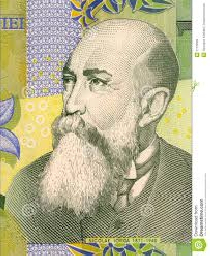Nicolae Iorga
In a 2006 contest organized by the public television, Nicolae Iorga came in 17th out of 100 personalities most admired by Romanians
Warning: Trying to access array offset on null in /home/web/rri.ro/public/wp-content/themes/rri/template-parts/content.php on line 53

Warning: Trying to access array offset on null in /home/web/rri.ro/public/wp-content/themes/rri/template-parts/content.php on line 98
Steliu Lambru,
20.01.2020, 13:19
Nicolae Iorga was born in Botosani, north-eastern Romania, in 1871. He studied history at
universities in Romania, Italy, France and Germany. He spoke several languages
and he approached various historical themes and subjects and was also
interested in the philosophy of history. He wrote some 20,000 articles and 1200
volumes and brochures. He was the cultural representative of the Samanatorist
ideology, which glorified the Romanian peasant. From a political point of view,
he was a conservative, an anti-Semite and promoter of authoritarianism. In 1910
he funded the Nationalist Democratic Party, together with lawyer AC Cuza, and
stood for Romania’s joining the Entente in WWI. He was close to the future king
Carol II, and he became prime-minister in 1931. He was very much convinced that
he had the exceptional mission of being the educator of the nation.
In
1999, Historian Eliza Campus gave an
interview to the Romanian Radio Broadcasting Corporation’s Oral History Center,
speaking of Nicolae Iorga as a role model, both personally and professionally.
I met him at the History Faculty and we established a very good
relationship from the very beginning. My father had just died, so I was in
mourning, wearing black clothes, and he asked me whether I needed help, lessons or something to earn
some money. Since then, we became close. He would always invite me to his
place, to study in his library, and we were really close until I graduated.
Nicolae
Iorga was an old-fashioned, 19th century type of nationalist, so he
got into conflict with the legionnaires, who were Fascist radicalists. As a
result of this conflict, their leader, Corneliu Zelea Codreanu, died in 1938.
In 1996, journalist Pan Vizirescu, an admirer of Iorga, tried to explain the
circumstances in which the conflict between the two parties occurred:
After the killing of Codreanu, at a conference held at the Royal
Foundations, Mr. Iorga said in front of the audience: ‘I wanted to advise the
legionnaires, as a parent, not to cut their heads off’. It was a big difference
between his advice and what Carol did.
Literary
historian Gabriel Tepelea saw Nicolae Iorga for the first time on December 1st,
1933, when he was only 17. Tepelea told the public television that he had seen
the historian at the public meeting of the National Revival Front, a
totalitarian party controlled by King Carol II. A devout democrat, Tepelea
believes that sometimes a person’s intellectual capacity does not match their
character, and Iorga was such a person.
I remember Iorga, with a patriarch’s beard, dressed up in a blue uniform,
as royal adviser, member of the National Revival Front. There are many
outstanding cultural figures who have not been able to say no to their own
ambitions, and in Iorga’s case, he could not stand up to both the king’s and
his own personal ambitions. So they resorted to some measures used by
dictators, such as dismantling political parties, abolishing democracy and
neglecting traditional alliances.
Engineer
Paul Stiubei recalled, back in 1994, how Iorga spoke on the public radio in
1940.
He had a text, but he would always derail from the text and digress. I
attended many of his public conferences, and he would always do the same, and
innuendos were his favorite. I remember that, one time, he came here and the
General Director Nicolae Sarateanu told me to let him operate the recording. He
was afraid that Iorga would say something against the Germans, as back then Romania
was pro-Germany.
On
November 27, 1940, Nicolae Iorga was taken to Strejnicu forest and killed by
legionnaires.






























